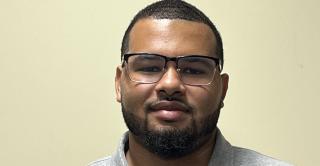
Central to Nurturing Relationships.
Central’s MS in Marriage & Family Therapy prepares you to assist individuals, couples, and families in a wide variety of settings and roles. The program will prepare you to become a therapist who is well-grounded in systems theory and clinical techniques. Throughout the program you will have ongoing training and supervision that will allow you to effectively, professionally, and ethically serve as an agent of intervention and change.
The program consists of a flexible evening track that affords students the opportunity to complete the program during the work week; typically within three years with full-time study. Because of our flexibility and convenience, our program attracts a diverse set of students that bring a richness to the graduate experience rarely seen elsewhere.
The MFT program's intensive 60-credit hour curriculum is designed to provide students with a solid theoretical background as a foundation for intensive clinical training in systemic approaches to human problems. The curriculum is designed to meet the academic requirements for Connecticut Licensure for Marital and Family Therapists and AAMFT Clinical Membership.
Program Features
- Starts every August
- 63-credit program
- Attend full-time
- Flexible class schedule helpful for working adults
- Practicum and internship opportunities
- Access to state-of-the-art clinical counseling laboratory
- Financial aid is available
- No GMAT/GRE required
Field Based Training
The MFT program at Central provides 2 years of supervised clinical training and field experience in a sequence that builds from the academic training in the first year.
Practicum
The Practicum is a two-semester, 12 hour-per-week supervised clinical placement during the Second Year. Students learn basic clinical skills and begin working with clients. Students process their experiences in a small group format with a faculty supervisor.
Internship
The Internship is a 12-month, 20-hour-per-week intensive clinical placement following the practicum experience which allows students to conduct marital and family therapy under supervision of an AAMFT Approved Supervisor. Interns conduct 400 hours of therapy with individuals, couples, and families; 200 hours must be with couples and families. Interns receive a minimum of 100 hours of individual and group supervision with a minimum of 50 hours of supervision using actual clinical material (i.e., audio and videotapes) for intensive review.
Did You Know?
Employment of marriage and family therapists is projected to grow 16% from 2020 to 2030, much faster than the average for all occupations.
Source: bls.gov




.png)